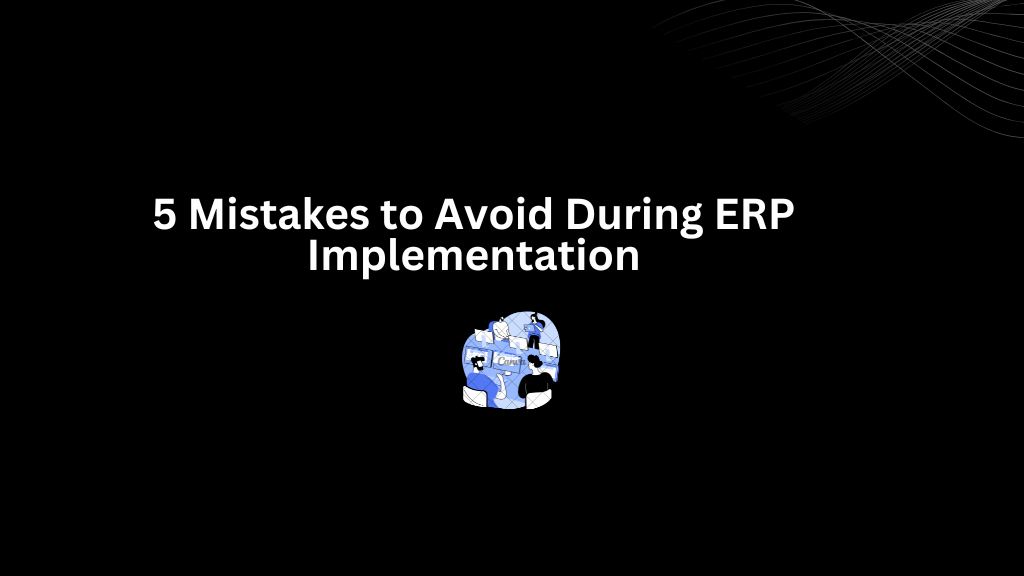Implementing an Enterprise Resource Planning (ERP) system is a transformative step for any business. It streamlines processes, enhances productivity, and provides a single source of truth for decision-making. However, ERP implementation can be complex, and mistakes during the process can lead to delays, higher costs, or even failure. Here are five common mistakes to avoid to ensure a successful ERP implementation.
1. Lack of Proper Planning
ERP implementation isn’t just about installing software; it requires strategic planning. A common mistake is diving into the process without a clear roadmap. Businesses should:
- Define clear goals for the ERP system.
- Identify key stakeholders and their roles.
- Establish a realistic timeline and budget.
Without proper planning, businesses risk scope creep and misalignment with organizational goals.
2. Choosing the Wrong ERP Solution
Not all ERP systems are created equal, and selecting one that doesn’t align with your business needs can lead to inefficiencies. Avoid this by:
- Conducting a thorough needs assessment.
- Comparing ERP vendors based on features, scalability, and cost.
- Seeking a solution tailored to your industry.
For instance, SAP Business One (SAP B1) is ideal for small to mid-sized businesses seeking scalability and customization.
3. Underestimating the Importance of Training
One of the biggest reasons for ERP failures is the lack of employee training. Your team needs to understand how to use the new system effectively. Businesses often overlook this critical step, leading to low adoption rates and inefficiencies.
- Conduct regular training sessions.
- Provide user-friendly resources like manuals and video tutorials.
- Involve employees early in the process for smoother adaptation.
4. Ignoring Data Cleanup Before Migration
Data is the backbone of an ERP system. Migrating outdated, inconsistent, or inaccurate data can compromise the efficiency of the system. Avoid this by:
- Conducting a thorough data audit before migration.
- Standardizing data formats.
- Eliminating redundant or obsolete records.
Clean, organized data ensures a smoother transition and better system performance.
5. Neglecting Post-Implementation Support
ERP implementation doesn’t end after the system goes live. Businesses often make the mistake of not prioritizing post-implementation support. Ongoing support is essential for:
- Addressing technical issues promptly.
- Updating the system to meet changing business needs.
- Continuously training employees as new features are introduced.
Partnering with a reliable ERP consultant for ongoing support can make a significant difference in long-term success.
About 3techno
At 3techno, we specialize in ERP solutions and implementation tailored to your unique business needs. Our team of experts ensures a seamless transition, from planning and deployment to post-implementation support. Whether you’re considering SAP Business One, Microsoft Dynamics, or Oracle NetSuite, 3techno is your trusted partner for ERP success.
Ready to transform your business processes with ERP? Contact 3techno today for expert guidance.

